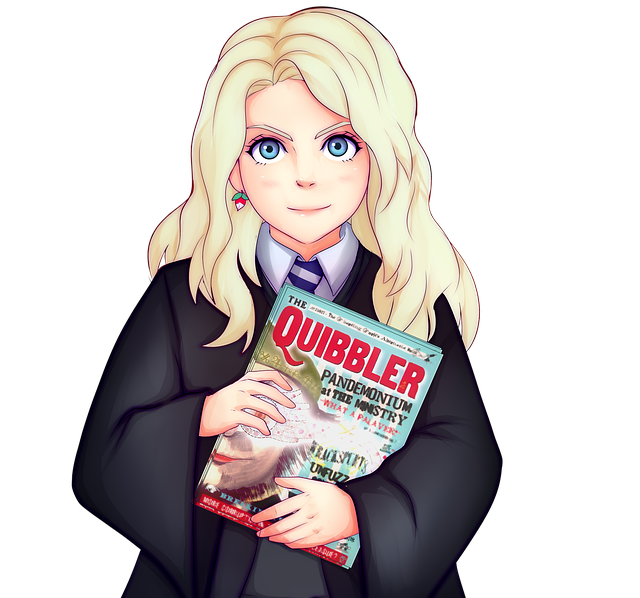Step into the captivating world of fan fiction, where creativity knows no bounds and stories take on their own life. This blog post will guide you if you’ve ever wondered about fan fiction.
From the passionate writers who have brought beloved characters to new adventures to the exceptional storytelling techniques that elevate fan fiction to exquisite heights, delve into the heart of this unique art form. Whether you’re a seasoned fanfic enthusiast or a curious newcomer, embark on this literary journey that will take your writing to the next level.
What is fan fiction, and how has it evolved?
Fan fiction is a type of creative writing that uses characters, settings, and elements from existing works of fiction to create new stories. It can be in the form of short stories, novellas, or even full-length novels. Authors take established worlds and characters from books, TV shows, movies, video games, and other media and build upon them with their unique ideas and interpretations.
The earliest known forms of fan fiction are in The Enquirer magazine during the early 19th century. Here, authors such as Charles Dickens and William Makepeace Thackeray published short stories based on popular books like Frankenstein and Alice’s Adventures in Wonderland.
Today’s variety is most commonly written by an individual author who has developed an affinity for a particular work or series; however, some authors may have their stories arranged collaboratively within online discussion forums dedicated to discussing specific topics related to the respective story foundation(s).
Learn from the best – examples of exceptional fan fiction writing
Fan fiction has produced some truly unique works of literature, with many authors showcasing their skills in storytelling, character development, and world-building. Some noteworthy examples include:
- Harry Potter and the Methods of Rationality by Eliezer Yudkowsky:
This popular fanfic reimagines the story of Harry Potter with a more rational and scientific approach. - Pride and Prejudice and Zombies by Seth Grahame-Smith:
A quirky retelling of Jane Austen’s classic novel, adding a zombie apocalypse element to the story. - The Shoebox Project by Lady Jaida and Dorkorific:
It is a beloved fanfic within the Harry Potter fandom that explores the relationship between Remus Lupin and Sirius Black. - A Squib’s Guide to the Wizarding World by TheLoud:
An engaging and humorous take on the Harry Potter universe from the perspective of a Muggle-born student at Hogwarts.
Techniques for crafting compelling fan fiction
Fan fiction writers can explore familiar worlds and characters while adding unique twists and perspectives. To successfully write fan fiction, here are some techniques that can help enhance your storytelling and critical thinking skills:
Develop well-rounded original characters:
While fan fiction relies on existing characters, creating original ones that add depth and dimension to the story is essential.
Be consistent with established canon:
Stay true to the characters and their personalities portrayed in the original work.
Explore different genres and tropes:
Experiment with genres such as romance, mystery, or alternate universes to keep your writing fresh and exciting.
Use descriptive language and vivid imagery:
Engage readers by painting a picture with your words, allowing them to immerse themselves in the story.
While fan fiction provides the freedom to create your own stories, it’s essential to understand and respect the source material. This means researching the canon, familiarizing yourself with the characters’ personalities and relationships, and staying consistent with established world-building rules.
Famous writers who used to write fan fiction stories
You may be surprised to learn that some favorite authors started their writing careers in fan fiction. There are dozens upon dozens of authors writing fan fiction for famous franchises like Star Trek or Star Wars—some even being adapted into full-fledged films themselves!
– JK Rowling famously admitted that she was one herself before penning her Harry Potter series, which wouldn’t exist if not for those initial writings she created out of her love for another universe entirely!
– Stephenie Meyer, the author of the Twilight series, began by writing fanfic about the band Hanson before publishing her debut novel.
– Cassandra Clare, known for her popular The Mortal Instruments series, also wrote fanfic based on J.R.R. Tolkien’s The Lord of the Rings before becoming published.
The impact of fan fiction on popular culture and the publishing industry

Fan fiction has not only become a creative outlet for fans but has also had a significant impact on popular culture and the publishing industry. It has given marginalized communities a voice, allowing them to see themselves represented in their favorite stories.
Here are some examples showing the impact of fan fiction
– Take Star Wars, for instance: the original trilogy sparked an entire universe of fan works embraced by its millions of followers around the globe. Star Wars fan fiction can be found everywhere, from licensed novels detailing untold adventures in a galaxy far, far away to independent small-scale productions created by passionate fans.
– Notable works include Mara Jade: By The Emperor’s Hand (a novel written by Timothy Zahn) and Star Wars Galaxy Of Adventures (an animated short series produced for Disney). These stories expand upon characters from both old and new eras of Star Trek lore, giving them their depth while still adhering to canon established within the franchise itself—something that would never happen without passionate fans driving these creations forward through their writing or art (or both!).
– Another fantastic example is Sherlock Holmes – ranging from books like Sherlock Holmes: The Adventure Of The Specimen Case by Arthur Conan Doyle up to modern adaptations such as Elementary or BBC’s Sherlock; this Victorian character continues to fascinate people over 100 years later!
The benefits of writing fan fiction
One of the biggest draws of writing fan fiction is the freedom it provides to explore and expand upon existing stories and characters. As a writer, you have complete control over the plot, character development, and world-building without worrying about staying true to canon or pleasing publishers. It allows for endless possibilities and encourages writers to think outside the box.
Fan fiction also offers a sense of community and connection with fellow fans. Through online forums, social media groups, and fan conventions, writers can engage in lively discussions about their favorite works and share their stories with like-minded individuals. It’s a great way to find support, gain feedback, and make new friends who share your love for a specific fandom.
Fan fiction’s surging popularity
Fan fiction has become a global phenomenon, with millions of stories and avid readers spanning various genres and fandoms. It has also gained recognition from mainstream media and even inspired spin-off works, such as the Fifty Shades of Grey series, which started as Twilight fan fiction.
Recently, fan fiction has seen a massive surge in popularity due to significant franchise properties such as Marvel’s Cinematic Universe (MCU), Star Wars, etc., offering easy entry points into creating original content using familiar characters that millions already know and love worldwide.
Moreover, digital services like Tumblr have made it easier for authors to publish their works online, allowing many talented creators who wouldn’t otherwise have access to traditional publishing opportunities to find success through this medium instead.
Understanding copyright law

As a writer, it’s essential to understand copyright law and how it applies to fan fiction. While using copyrighted material without permission is technically illegal, some ways to stay within legal boundaries exist.
One option is to write transformative works, where the original characters and world are used as a basis but are significantly altered or reimagined. This typically falls under fair use and may protect writers from legal action. Another option is to seek permission from the copyright holder, although this can be complicated and lengthy.
The impact and controversy surrounding fan fiction
While fan fiction has gained immense popularity recently, it has also faced criticism and legal challenges. Due to its use of copyrighted material without permission, some authors and publishers have taken issue with fan fiction and even issued cease-and-desist orders to writers. This has sparked debates about the legality and ethics of fan fiction.
Another concern is plagiarism, as some fanfic writers may unintentionally or intentionally borrow ideas from other works without giving proper credit. To avoid this issue, always cite your sources and seek permission to use someone else’s original ideas or characters.
Moreover, the debate over whether fan fiction should be considered a form of plagiarism or an entirely separate art form continues. While some argue that fanfic is not original and merely derivative of existing works, others believe it can stand alone as a creative and transformative work.
Example of how to make fan fiction your own story based on existing works

The best way to make your fan fiction stand out is by making it your own. This means developing unique characters, plotlines, and writing styles distinct from the source material. It also involves staying true to yourself as a writer and not conforming to expectations or peer pressure.
An example of an excellent fanfiction story is the New Alice, a spin-off of Lewis Carroll’s beloved classic, Alice’s Adventures in Wonderland. Set in the present day, this imaginative retelling follows nineteen-year-old Alice as she returns to Wonderland, now known as Underland. She quickly finds herself on an epic quest to discover her true destiny and end the Red Queen’s reign of terror.
The movie stars Mia Wasikowska as Alice Kingsleigh. It features an all-star cast including Johnny Depp (the Mad Hatter), Helena Bonham Carter (the Red Queen), Anne Hathaway (White Queen) and Crispin Glover (Stayne).
In this modern version of the classic tale, we follow Alice on her journey, where she discovers newfound courage to stand up for herself and battle royal tyranny. Through her newfound strength, she proves that one person can be a powerful force for change in even the most impossible circumstances.
Strategies for finding inspiration
Finding inspiration for writing fanfiction can be challenging, especially when working within the confines of established stories and characters. However, several strategies can help spark creativity and generate new ideas.
– One approach is to focus on minor or underdeveloped characters in the original work and explore their backgrounds and motivations.
– Another option is to take a different perspective on familiar events or reimagine them entirely from scratch.
– Additionally, looking to other works of fiction or real-life events for inspiration can lead to unique and intriguing storylines.
Overall, the key is to be open-minded and constantly seek new sources of inspiration for your fan fiction writing. There are fan communities, with online platforms such as Fanfiction.net and Archive of Our Own providing a space for writers to share their work and interact with other fans.
Conclusion
Fan fiction is a vibrant and dynamic art form that allows writers to explore, connect, and express themselves uniquely. It has come a long way from its humble beginnings and continues to evolve with the changing times.
Fan fiction is not just a hobby but can also be a stepping stone for writers to hone their skills and succeed in the publishing industry. So, if you love writing fanfic, don’t be afraid to dream big and pursue your passion. One day, your fanfic story will become the next big hit!
However, fanfiction writers must understand and respect copyright and creative rights boundaries. By doing so, we can continue to enjoy fan fiction’s countless possibilities and joys for years. Keep writing and exploring, fellow fans! The world is waiting for your stories.
Thank you for taking the time to read. May you find success and joy in all that you create.
If you’re working on your first novel and are looking for more help with your writing, please check out my other articles at https://ullahakanson.com/blog/
Best of luck with your writing!
Ulla
www.ullahakanson.com

